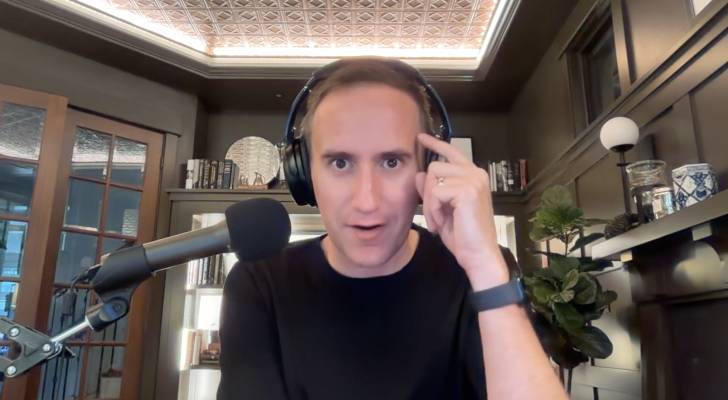Wealth, for many, is framed as a status pursuit — the six-figure salary, the perfectly timed investment and the satisfaction of being ahead of the curve.
Yet Morgan Housel, bestselling author of The Psychology of Money and Same As Ever, argues that real financial success has less to do with flash and more to do with the everyday decisions we often overlook.
In conversation with Moneywise ahead of his upcoming book, The Art of Spending Money, Housel explained that the most expensive mistakes rarely come down to intelligence.
They’re rooted in something simpler: a lack of awareness.
“Most financial mistakes don’t come from lack of intelligence”, Housel said. “It comes from ignorance. And there are so many people, college-educated, smart people, who, if you ask them, how much do you make and how much do you spend? They honestly can’t really tell you.”
Want the full Morgan Housel conversation? Subscribe to our mailing list to watch all our latest interviews before anyone else.
It sounds obvious but you need to regularly open your banking app and look at the numbers. Yet for many people, that simple act is loaded with avoidance and anxiety. A MarketWatch survey found that 42% of Americans don’t check their account balance — not because they forget, but because they’re afraid of what they’ll find. (1)
“Check your bank account every single day,” Housel reinforced to Moneywise.
The gap, he said, lies in awareness. If you can’t say how much you earned in a month or how much you’ve already spent, you’re flying blind.
Most banks and credit unions offer apps that let you check balances and spending patterns in seconds. The fix doesn’t require a complicated budgeting system. Start by opening your account once a day and jotting down two numbers: what came in and what went out.
Over time, that habit will help you spot patterns — unused subscriptions, impulse purchases or excess spending that’s depleting your account slowly. It’s a small step, but that kind of consistency can keep your financial foundation intact.
Read more: 30% of US drivers switched car insurance in the last five years. Here’s how much they saved — and how you can cut your own bills ASAP
Money isn’t one-size-fits-all. Too often, people follow inherited financial scripts: a parent’s idea of security, a buddy’s “can’t miss” stock tip or the media’s latest version of what success should look like.
Story continues
But wealth, Housel says, is personal. The real work begins not with copying someone else’s strategy but with figuring out what makes sense for your life, goals and tolerance for risk.
“Everyone has their own little quirks of what’s going to make you happy,” Housel said.
That’s easier said than done in an age of social media milestones and finance hacks. According to Bankrate’s Social Media Survey, 57% of American adults who use social platforms say those apps make them feel worse about their money.
Those highlight reels are rarely the full story. Behind every carefully curated image of abundance lies a set of trade-offs — credit card debt, financial stress and compromises no filter reveals.
The result is a distorted comparison game: measuring your financial reality against someone else’s performance. The real challenge is shutting out the noise long enough to define what financial stability looks like on your own terms.
One of the most costly money mistakes, Housel warns, is chasing validation from people who aren’t even paying attention. The car, the watch, the designer bag — they’re less about personal satisfaction and more about signaling to an outside audience.
Instead, ask yourself: What goals actually matter within your own four walls? What would contentment look like if no one else were watching?
David Dubois, Ph.D., associate professor of marketing at INSEAD, underscored this point in an interview with Forbes.
“Status is one of the key central motivations that explains why people buy luxury,” he said. “Obviously, nobody cares to admit they want to build their status by purchasing luxury goods … but status building is very important because people want respect in the eyes of others.”
A recent survey from Boston Consulting Group and Worth Media found that 54% of affluent Millennials openly use luxury purchases to signal wealth and achievement, while 70% say they worry about projecting the “right” image. In other words, the logo still doubles as a social résumé. (3)
That’s exactly why Housel advises resisting the gravitational pull of status.
“Live within what I call a humble bubble of making sure that your aspirations and your goals try to keep them as close to your life as possible,” he said.
Join 200,000+ readers and get Moneywise’s best stories and exclusive interviews first — clear insights curated and delivered weekly. Subscribe now.
We rely only on vetted sources and credible third-party reporting. For details, see our editorial ethics and guidelines.
Marketwatch (1); Bankrate (2); Forbes (3).
This article provides information only and should not be construed as advice. It is provided without warranty of any kind.
